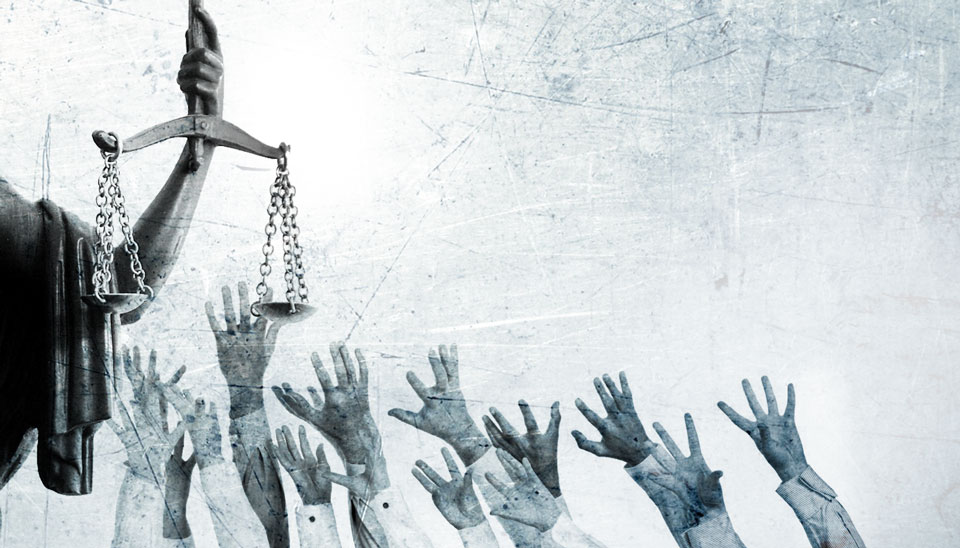By Damaris Kemunto,
MSAMBWENI, Kwale – African native communities have been governed by African Customary law since Pre-colonial Africa. Customary law revolved around the socio-economic set-up of the African way of life. The spirit of collectivism was so ingrained in people’s minds that most social functions were done collectively. Thus, the essence of collectiveness has extended to the justice system.
African customary law focuses on restorative Justice to bring together the victims, offenders, and community members to address and resolve disputes. That has fostered offender accountability, reparation to the victim, and full participation by the affected community members.
Developing a modern legal system and implementing the common law in Kenya has brought forth the adversarial system of Justice through courts and tribunals. Since independence, the Courts have been Kenya’s main formal forums for dispute resolution. Lengthy and tedious litigation processes, high appeal rates, recurrence of conflicts, and adversarial win-lose outcomes indicate that courts are not yielding optimal results as the only formal dispute resolution avenue.
In addition, the courts have since faced case backlog as a hindrance to Justice. According to the State of the Judiciary and the Administration of Justice Annual Report 2021- 2022 (SOJAR), the case backlog in all courts stood at 336,426 at the end of the Financial Year 2021/22.
The Constitution provides for alternative dispute resolution mechanisms, including traditional approaches, as long as they do not contravene the Bill of Rights, are not repugnant to Justice or morality or inconsistent with the Constitution or any written law. Against this background, the Judiciary has institutionalized Alternative Dispute Resolution Mechanisms in settling disputes including Alternative Justice System (AJS) through the AJS Policy.
Currently being implemented, the Alternative Justice System Policy has formulated appropriate dispute resolution models and pathways that make justice more accessible and pragmatic in Kenya. The Policy seeks to recognize, regulate, and enhance the use of various AJS models as a linkage between the formal and informal justice systems. As a result, the role of paralegals in promoting access to justice in policy implementation is recognized.
The Policy embraces a pluralistic approach to justice and considers the people’s cultural, social, economic, and geographic diversity. Therefore, paralegals are critical in achieving this objective since they are the first point of contact for their communities’ justice needs. They have direct contact among the first responders to the poor and marginalized, seeking legal redress when disputes arise.
They are, therefore, essential in gathering information and offering technical support for implementing the AJS policy, which recognizes the importance of integrating traditional values, customs, and beliefs into the justice system. In addition, they articulate challenges and address access to justice needs in their communities.
Further, they enjoy trusting community connections and have proved reliable in offering legal advice to their community members. In this regard, regular training and capacity building of paralegals on AJS would significantly improve implementation of the Policy.
ICJ Kenya has identified the need to promote AJS whilst advancing access to Justice for the poor and marginalized communities. To this end, ICJ Kenya was appointed and gazetted as a member of the AJS Taskforce to conduct research into other forms of alternative dispute resolution and recommend to the Judiciary guidelines for incorporating them into the mainstream justice system. Since the appointment, ICJ Kenya has been collecting data on AJS mechanisms in Kenya.
In addition, ICJ Kenya is a member of the National Steering Committee on the implementation of the AJS Policy. The Policy contextualizes the constitutional obligation to promote Alternative Justice Systems under Article 159(2)(c) of the Constitution within a human rights framework constituted by three mutually reinforcing obligations: protecting, respecting, and transforming.
A hallmark of ICJ Kenya’s human rights work is promoting access to Justice through the entrenchment of paralegalism. For over three decades, ICJ Kenya has coordinated a network of paralegals in Trans Mara, Taita Taveta, Kwale, Kitui, Meru and Laikipia counties.
“We acknowledge that paralegals play an integral role in promoting access to Justice through Legal Aid for the indigent and marginalized persons at the community. Consequently, ICJ Kenya plans to conduct a two-day paralegal training on AJS in Kwale County.,” said Damaris Kemunto, ICJ Kenya, Program Officer. Who further said, “The overall objective of the training is to build the paralegals’ capacity, focusing on enhancing restorative Justice to bring together the victims, offenders, and community members to address and resolve disputes.”
The writer, Damaris Kemunto, is a Programme Officer at ICJ Kenya.






